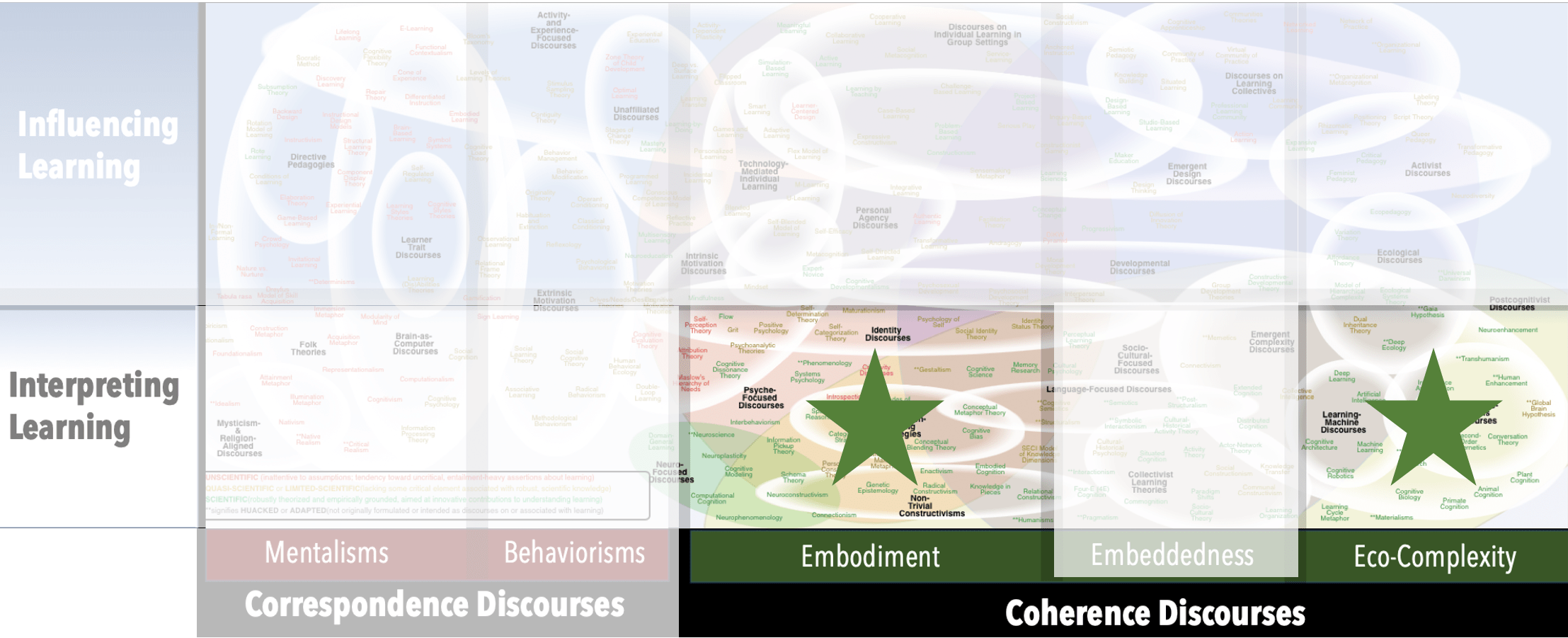AKA
Predictive Learning
Predictive Processing
Focus
Anticipating upcoming sensations based on immediate sensationsPrincipal Metaphors
- Knowledge is … range of possible anticipations
- Knowing is … appropriate anticipations
- Learner is … a sensing agent (organism or a digital technology)
- Learning is … updating one’s frame of anticipation
- Teaching is … N/A
Originated
1980sSynopsis
Predictive Coding asserts that cognitive systems’ movements through the world are based more on educated expectation (top-down, conceptual knowledge) than immediate perception (bottom-up, sensory information). Learning becomes necessary when prediction errors occur – that is, when there is a mismatch between what the cognitive system predicts and what that system receives as sensory input. The same types of processes are used for different neural networks, including perception, understanding, dreaming, memory and imagination. The fields of computer science and Cognitive Science both utilize Predictive Coding to generate models of cognition that underlie machine learning and neural nets. Subdiscourses include:- Bayesian Brain Theory (Geoffrey Hinton, 2000s) – a framework that proposes the brain is constantly generating and updating probabilistic models (or “beliefs” about the world based on prior knowledge and new sensory evidence. (The name comes from Bayes’ Theorem, a method for updating the probability of a hypothesis in light of new evidence.)
Commentary
Proponents of Predictive Coding make close ties to Enactivism and its conception of the cognitive system in action-oriented terms. However, critiques claim that predictions are based on a metaphor of “stored knowledge,” which is contradictory to the premises of Enactivism. In the same vein, Predictive Coding falls among Postcognitivist Discourses, which problematize the use of computer metaphors to describe cognition.Authors and/or Prominent Influences
Andy ClarkStatus as a Theory of Learning
Predictive Coding provides insights into the complexities of learning.Status as a Theory of Teaching
Predictive Coding does not attempt to offer any advice for teaching or education.Status as a Scientific Theory
Predictive Coding is a well-established discourse in Neuroscience and Cognitive Science.Subdiscourses:
- Bayesian Brain Theory
Map Location

Please cite this article as:
Davis, B., & Francis, K. (2025). “Predictive Coding” in Discourses on Learning in Education. https://learningdiscourses.com.
⇦ Back to Map
⇦ Back to List
